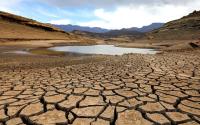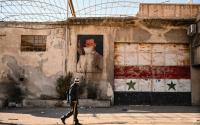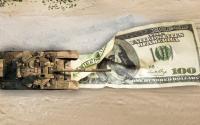8 May 2005Peter Beaumont, foreign affairs editor
After one of the bloodiest weeks in Iraq since the fall of Saddam, US military officials have claimed that the dramatic upsurge in violence is proof they are close to breaking up the terrorist network of Abu Musab al-Zarqawi, the Jordanian-born leader of al-Qaeda in Iraq.
In the last nine days, about 250 Iraqis - mostly from the country's fledgling security services - have died in a series of suicide bombings which continued yesterday when two car bombs killed 22, including two Americans, at one of Baghdad's busiest road junctions.
Despite the escalating violence, American officials this weekend took the unusual step of announcing that the bloodshed was the insurgents' response to the headway they claim they are making in breaking up the terror networks.
According to the statement, at least 20 'trusted lieutenants' of Zarqawi - the most wanted man in Iraq - have been captured or killed in recent months, including 'terror-cell leaders, propaganda chiefs, bomb-makers, drivers and other key lieutenants'.
Those arrested include Zarqawi's driver, Abu Usama, who was captured in February, minutes after Zarqawi himself had leapt from the same car. According to Usama, 'Zarqawi became hysterical. Zarqawi did not know where he was because he demanded repeatedly, "Who lives in this area? What sub-tribe is here?"'
According to the statement, 'Zarqawi then quickly grabbed his American-made rifle with one magazine and an unknown amount of US dollars and escaped. Mr Zarqawi left behind his computer, pistols and more ammunition, which were all seized in the raid. It is believed Zarqawi went back to Haditha and hid with members of local tribes who continue to provide him support and sanctuary.'
In a further indication of the pressure on Zarqawi, Iraqi security forces yesterday announced that they had captured another aide to the Jordanian militant, Ghassan al-Rawi, who they identified as the militant leader of the western town of Rawa.
The upsurge in violence comes amid growing concern that Iraq may be on the brink of civil war amid a continuing failure of political leadership.
Fears that sectarian tensions were intensifying were further fuelled by the disclosure yesterday that 14 bodies found buried in shallow graves in a rubbish dump on the outskirts of Baghdad were those of Sunni farmers from the insurgent stronghold of Madaen. A number of the bodies showed signs of torture - broken limbs and rope burns. Most had been killed by a single shot to the head.
Friends of the men claimed they were farmers taken by men dressed as Iraqi police, who have been accused by Human Rights Watch of routine beatings and electric shock torture of suspects.
The town has recently seen a series of tit-for-tat kidnappings and murders across the Shia-Sunni divide.
The influential Muslim Clerics Association, which has a wide following among the Sunnis, published the names of the 14 victims, all of them from one of Iraq's most powerful tribes.
Despite hopes that the announcements last week of a new Iraqi government and yesterday's statement that the prominent Sunni, Sadoun al-Dulaimi, would become Minister of Defence might turn the tide against the insurgency, the killing has continued unabated.
One victim of the worsening security situation in Iraq has been the tribunal to try prominent former members of the Baathist regime, including Saddam Hussein himself.
According to those familiar with the process, plans for the first trials have been delayed because of the inability of Iraq's security forces and its multinational partners to guarantee the safety of key officials, witnesses and their families who have been threatened with assassination.
The latest developments emerged as al-Jazeera aired a new video showing Australian hostage Douglas Wood, 63, pleading for his life as two guerrillas pointed rifles at him. Wood appeared distraught and his head had been shaved.
Al-Jazeera said that his captors were demanding that Australia begin withdrawing its troops from Iraq within 72 hours.
The latest attack in Iraq took place at 11am yesterday when a suicide car bomb exploded in a busy commer cial neighbourhood of central Baghdad, killing at least six people and wounding nearly 30. The US military said the casualties included an unspecified number of American civilians.
Witnesses said at least three children were among the dead. Two wounded Iraqi girls, with blood on their dark grey school uniforms, were seen being rushed to a hospital from their school in the Tahrir Square area.
The bomb targeted one of the distinctive convoys used by foreign civilians in Iraq, who usually travel in conspicuous sports utility vehicles protected by armed security guards.
http://observer.guardian.co.uk/print/0,3858,5188753-102275,00.html






